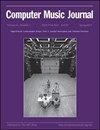托马斯·马普福莫与津巴布韦殖民地和独立后的抗议歌曲
IF 0.4
Q4 COMPUTER SCIENCE, INTERDISCIPLINARY APPLICATIONS
引用次数: 0
摘要
本参考书目涵盖了音乐家Thomas“Mukanya”Mapfumo(生于1945年)在殖民和后殖民津巴布韦创作的精选抗议歌曲的奖学金。为了与马克思主义文化理论取向保持一致,这些条目的组织追溯了Mapfumo歌曲的社会政治参与,这些歌曲分别反映了第二次和第三次奇穆伦加政治解放战争期间的赞美和异议。关于津巴布韦经济挑战的论述有积极和消极的解释。Mamdani 2005和Bond and Manyanya 2002(两者均引自总览)指出,津巴布韦非洲民族联盟爱国阵线(ZANU-PF)继承了由于独立前政策而已经遭受损失的经济。Dossa 2007 (General Overview下)认为,发展是为了使西方的主导地位永久化。《Manjengwa 2007》(总览)指责执政党在实施发展项目时采用自上而下的方法。参考书目的第一部分分析了穆坎亚为表达津巴布韦人在殖民时期的经历而创作的歌曲“pumvu paruzevha”、“Kuyaura”、“Chiruzevha chapera”和“Tumira vana kuhondo”。津巴布韦人的生活方式被打乱了,穆卡尼亚通过抗议歌曲反映了这种文化动荡。这些歌曲与非洲民族联盟-爱国阵线的意识形态产生了很好的共鸣。独立后不久,马普福莫唱起了庆祝歌曲(“津巴布韦”和“拉卡瑞拉jongwe”)。第二部分检视独立后创作的抗议歌曲(“Varombo kuvarombo”、“Ndiani waparadza musha”、“Musatambe nenyika”、“Disaster”、“Corruption”、“Mamvemve”、“Maiti kurima hamubvire”、“Chauya Chauya”和“Ndangariro”)。由于执政的非洲民族联盟-爱国阵线精英据称管理不善,局势恶化,这引起了穆卡尼亚的批评。参考书目追溯了非洲民族联盟-爱国阵线如何通过穆卡尼亚的音乐描绘从英雄到恶棍的转变。在武装斗争中,马富茂站在解放战争运动一边。这种情况在津巴布韦独立后发生了变化,马普福莫以讽喻的方式提出了一些问题,直指非洲民族联盟-爱国阵线领导人为提高津巴布韦人民的生活水平所做的空洞承诺。穆卡尼亚唱到了津巴布韦有争议的土地再分配。因此,马普福莫一直受到国家镇压人员的跟踪,直到2000年逃往美国流亡。他渴望乌班图哲学、民族主义和团结。人们可能有不同的意识形态,但他们应该作为一个民族接受彼此。这促进了津巴布韦人民40多年来所渴望的积极和平。Mapfumo希望人们在经济上获得权力。他以前被监禁过,他无所畏惧。奇穆伦加音乐是受压迫群众的声音。穆卡尼亚的歌曲含有明确的政治信息,因此被政府禁止播放。尽管流亡在外,马普福莫仍然与他为之奋斗的人民团结在一起。Mapfumo用音乐来抱怨人们的苦难。在非洲民族联盟-爱国阵线(ZANU-PF)霸权的背景下,他对津巴布韦的记忆仍然深深植根于奇穆伦加音乐中。他呼吁举行自由公正的选举,因为津巴布韦人民有权选择领导人,但是自2000年以来,选举结果一直存在争议。本文章由计算机程序翻译,如有差异,请以英文原文为准。
Thomas “Mukanya” Mapfumo and Songs of Protest in Colonial and Post-Independence Zimbabwe
This bibliography covers scholarship on selected protest songs of the musician Thomas “Mukanya” Mapfumo (b. 1945) that were written in colonial and postcolonial Zimbabwe. In keeping with the Marxist cultural theoretical orientation that is evident in research on this subject, the organization of these entries traces the sociopolitical engagement of Mapfumo’s songs that reflect praise and dissent during the Second and Third Chimurenga wars of political liberation, respectively. Discourse on Zimbabwe’s economic challenges has positive and negative interpretations. Mamdani 2005 and Bond and Manyanya 2002 (both cited under General Overview) state that the Zimbabwe African National Union-Patriotic Front (ZANU-PF) inherited an economy that had already suffered due to pre-independence policies. Dossa 2007 (under General Overview) argues that development is meant to perpetuate Western dominance. Manjengwa 2007 (under General Overview) blames the ruling party’s top-down approach in implementing development programs. The first section of the bibliography analyzes the songs “Pfumvu paruzevha,” “Kuyaura,” “Chiruzevha chapera,” and “Tumira vana kuhondo,” which Mukanya composed to express the experiences of Zimbabweans during colonialism. Zimbabweans’ way of life was disrupted and Mukanya mirrored this cultural upset through protest songs. The songs resonated well with the ideology of the ZANU-PF. Soon after independence, Mapfumo sang celebration songs (“Zimbabwe” and “Rakarira jongwe”). The second section examines protest songs penned after independence (“Varombo kuvarombo,” “Ndiani waparadza musha,” “Musatambe nenyika,” “Disaster,” “Corruption,” “Mamvemve,” “Maiti kurima hamubvire,” “Chauya chauya,” and “Ndangariro”). The scenario deteriorated due to alleged misgovernance by the ruling ZANU-PF elite, a situation that attracted Mukanya’s criticism. The bibliography traces how the transition of ZANU-PF from heroes to villains is portrayed through Mukanya’s music. During the armed struggle, Mapfumo sided with the liberation war movement. This changed after independence, and Mapfumo allegorically poses questions pointing at the empty promises ZANU-PF leaders made to uplift Zimbabweans’ standard of living. Mukanya sang about the contested land redistribution in Zimbabwe. Consequently, Mapfumo was stalked by state repressive agents until he fled to live in exile in the United States in 2000. He yearned for Ubuntu philosophy, nationalism, and unity. People may differ ideologically, but they ought to accept one another as a nation. This fosters positive peace, which Zimbabweans have yearned for over four decades. Mapfumo wants people to be economically empowered. He has been incarcerated before and he is fearless. Chimurenga music is a voice for the downtrodden masses. Mukanya’s songs that have explicit political messages were banned from airplay by the government. Mapfumo has remained united with the people he is fighting for despite living in exile. Mapfumo uses music to complain about the people’s suffering. He bears memories about Zimbabwe that remain engrained in Chimurenga music in the backdrop of ZANU-PF hegemony. He has called for free and fair elections because Zimbabweans have a right to choose leaders, but election results have been contested since 2000.
求助全文
通过发布文献求助,成功后即可免费获取论文全文。
去求助
来源期刊

Computer Music Journal
工程技术-计算机:跨学科应用
CiteScore
1.80
自引率
0.00%
发文量
2
审稿时长
>12 weeks
期刊介绍:
Computer Music Journal is published quarterly with an annual sound and video anthology containing curated music¹. For four decades, it has been the leading publication about computer music, concentrating fully on digital sound technology and all musical applications of computers. This makes it an essential resource for musicians, composers, scientists, engineers, computer enthusiasts, and anyone exploring the wonders of computer-generated sound.
Edited by experts in the field and featuring an international advisory board of eminent computer musicians, issues typically include:
In-depth articles on cutting-edge research and developments in technology, methods, and aesthetics of computer music
Reports on products of interest, such as new audio and MIDI software and hardware
Interviews with leading composers of computer music
Announcements of and reports on conferences and courses in the United States and abroad
Publication, event, and recording reviews
Tutorials, letters, and editorials
Numerous graphics, photographs, scores, algorithms, and other illustrations.
 求助内容:
求助内容: 应助结果提醒方式:
应助结果提醒方式:


